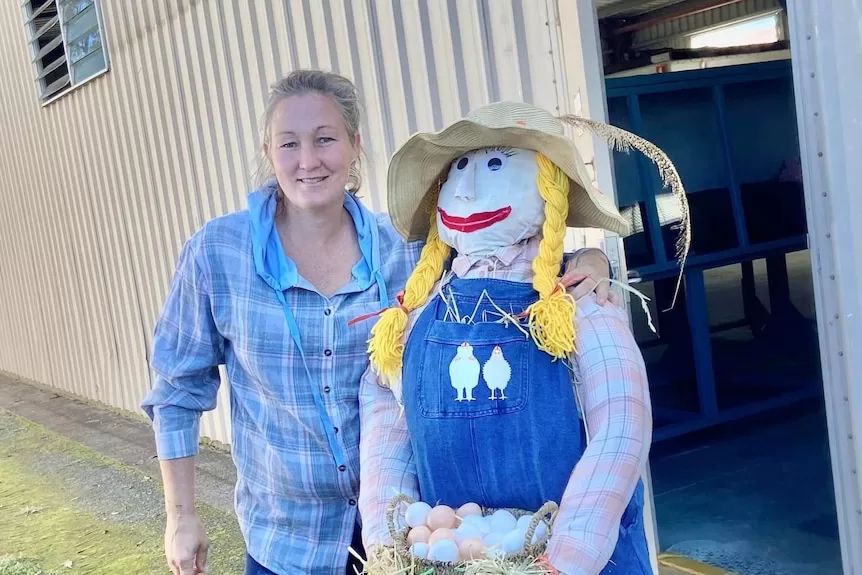Following the news Coles supermarkets are limiting how many eggs customers can buy, you might be wondering how to make the ones you have last.
Stored correctly, most eggs can last up to six weeks.
We find out the best way to keep them, and tricks to knowing if they’ve gone bad.
How to store eggs correctly
According to Australian Eggs, a not-for-profit for egg farmers, fresh eggs can be kept refrigerated for up to six weeks.
You should follow the use-by date on the carton, however.
Avoiding temperature fluctuation is critical to egg safety.
“A cold egg left out at room temperature can sweat, facilitating the growth of bacteria that could contaminate the egg,” according to Australian Eggs.
Refrigerated eggs should not be left out for more than two hours before cooking.
Emma Morgan runs Fat Hen Hobby Farm in Wamuran, near Caboolture in south-east Queensland, and says whether you’re collecting them from your own backyard or the supermarket, it’s best to refrigerate eggs as soon as possible.
“It’s quite controversial as everyone has their own way [of storing] eggs — but I think they should be in the fridge.
“When I lived in Tasmania it would be fine to leave them on the bench for 10 days, but in Queensland I store them in the fridge and generally get three to four weeks that way.”
She says to leave eggs in their carton, as eggs are porous and can soak up any fridge smells.
Do home-grown eggs last longer than store-bought?
Ms Morgan says store-bought eggs are “pretty fresh”, so the use-by date compared with home-grown eggs shouldn’t vary.
Whether or not they are caged eggs or free-range won’t impact how long they last, Ms Morgan says.
“I do find with some of my smaller breeds, like my Polish and Pekins — the smaller eggs don’t last as long.”
How to know if an egg has gone bad
You can tell if an egg has gone bad without cracking it by placing it in a glass of water.
If the egg sinks to the bottom and lies flat on one side, it’s good and fresh to eat.
A bad egg will float because of the large air cell that forms at its base — and should be thrown out, according to Australian Eggs.
Ms Morgan says if you are unsure, crack an egg in a bowl before adding it to your cake batter or fry pan.
“If it’s super runny, that’s not good. If the yolk breaks and mixes with the white, I tend not to eat it just in case.
“Any blood is a sign they started to incubate — don’t eat it.”
She says any discolouration, chunky bits or bad smell are also signs your egg should be thrown out.
Can you freeze an egg?
You can freeze eggs, but not in their shell, explains Ms Morgan.
“You have to crack it first — a lot of people freeze them in ice trays.”
Do chickens lay less in winter anyway?
Hens require a minimum of 14 hours of light per day to maintain consistent egg production.
As the days get shorter in the cooler months, egg laying may decrease or stop altogether.
Ms Morgan says it’s been a “whacky season” for chickens this year.
“This year has been a really hard year. Because we had so much rain, and it was dark days when raining, my chooks stopped laying around February.
“That said, they have started to pick back up earlier than usual.”
She says it’s not as relevant for commercial farms, who use lights to keep hens laying.
ABC Everyday in your inbox
Get our newsletter for the best of ABC Everyday each week
